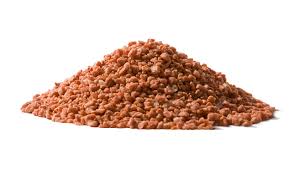
Dic . 05, 2024 20:01 Back to list
Exploring the Benefits of Potash Powder Fertilizer for Optimal Plant Growth and Yield
The Role of Potash Powder Fertilizer in Sustainable Agriculture
Potash powder fertilizer, primarily composed of potassium salts, plays a crucial role in modern agriculture. As a vital nutrient needed for plant growth, potassium enhances various physiological functions in plants, ensuring healthy development and higher yields. Its significance has grown in light of the increasing demand for food production and sustainable farming practices.
Understanding Potash
Potash is a term that refers to potassium compounds, with potassium chloride (KCl) being the most common form used in fertilizers. Potassium is one of the three essential macronutrients that plants require, along with nitrogen and phosphorus. While nitrogen promotes foliage growth and phosphorus supports root and flower development, potassium is fundamental in enhancing overall plant health and resilience.
Potash is actively involved in several plant processes, including photosynthesis, water regulation, and enzyme activation. It helps plants manage stress from extreme weather conditions, diseases, and pests. Thus, it is a critical player in increasing crop resilience in a changing climate, making it an invaluable ingredient for farmers.
Benefits of Potash Powder Fertilizer
1. Improved Crop Yield Potassium is vital for maximizing plant growth and productivity. Potash powder fertilizer enhances the size, quality, and quantity of fruits and vegetables. This leads to better market prices for farmers and contributes to food security.
2. Enhanced Quality The application of potash improves the quality of produce, leading to higher nutrient content, better taste, and increased shelf life. For instance, potassium contributes to the firmness of fruits and vegetables, while also enhancing their color and sweetness.
3. Disease Resistance Plants fortified with adequate potassium levels exhibit greater resistance to diseases and pests. This resilience reduces the need for chemical pesticides, promoting more organic farming practices.
4. Water Efficiency Potassium aids in the regulation of water within plants, enhancing their ability to retain moisture during drought conditions. This is especially vital as water scarcity becomes an increasingly pressing issue in many agricultural regions worldwide.
5. Soil Health Potash contributes to improved soil structure, nutrient availability, and overall health. Healthy soil systems are essential for sustainable agriculture, promoting biodiversity and enhancing the ecosystem's resilience.
potash powder fertilizer

Application Methods
The application of potash powder fertilizer can be conducted through various methods, depending on the crop requirements and soil conditions. Common application techniques include
- Broadcasting Uniformly spreading the fertilizer on the soil surface before planting or during the growing season.
- Banding Placing the fertilizer in bands next to seed rows, which helps ensure that seedlings access nutrients quickly.
- Foliar Feeding Spraying diluted potash solutions on plant leaves, providing a quick nutrient boost during critical growth stages.
Proper timing and application rates are crucial to ensure the effective uptake of nutrients while minimizing environmental impacts. Soil testing is recommended to determine potassium levels and tailor the application accordingly.
Environmental Considerations
As farming practices evolve, the environmental impact of fertilizers, including potash, must be carefully managed. Over-application can lead to nutrient runoff into waterways, causing eutrophication and other ecological issues. Therefore, sustainable practices such as precision agriculture and integrated nutrient management are increasingly important. These practices help optimize fertilizer use, ensuring that crops receive the necessary nutrients while minimizing excess application.
Conclusion
Potash powder fertilizer is an essential component of modern agriculture, contributing significantly to crop yield and quality while enhancing plant resilience to stress. As global food demands continue to rise, investing in potash solutions can lead to more sustainable farming practices, promoting not only food security but also environmental health. By understanding the benefits and proper application of potash, farmers can make informed decisions that contribute to the sustainability of their agricultural systems and the well-being of future generations.
-
Premium 8 12 16 Fertilizer – High-Efficiency Compound & Granular NPK Supplier
NewsJun.10,2025
-
High Quality Agricultural Grade NPK Fertilizer Manufacturer & Supplier Reliable Factory Price
NewsJun.10,2025
-
Organic Fertilizer for Corn Boost Yield Sustainably
NewsJun.10,2025
-
Organic Fertilizer for New Plants Natural Growth Boost & Eco Nutrients
NewsJun.10,2025
-
Optimized Hydroponic NPK Fertilizer – Fast Growth & Nutrients
NewsJun.09,2025
-
Top-Rated NPK Fertilizer for Fruit Trees - Boost Growth & Yield
NewsJun.09,2025
